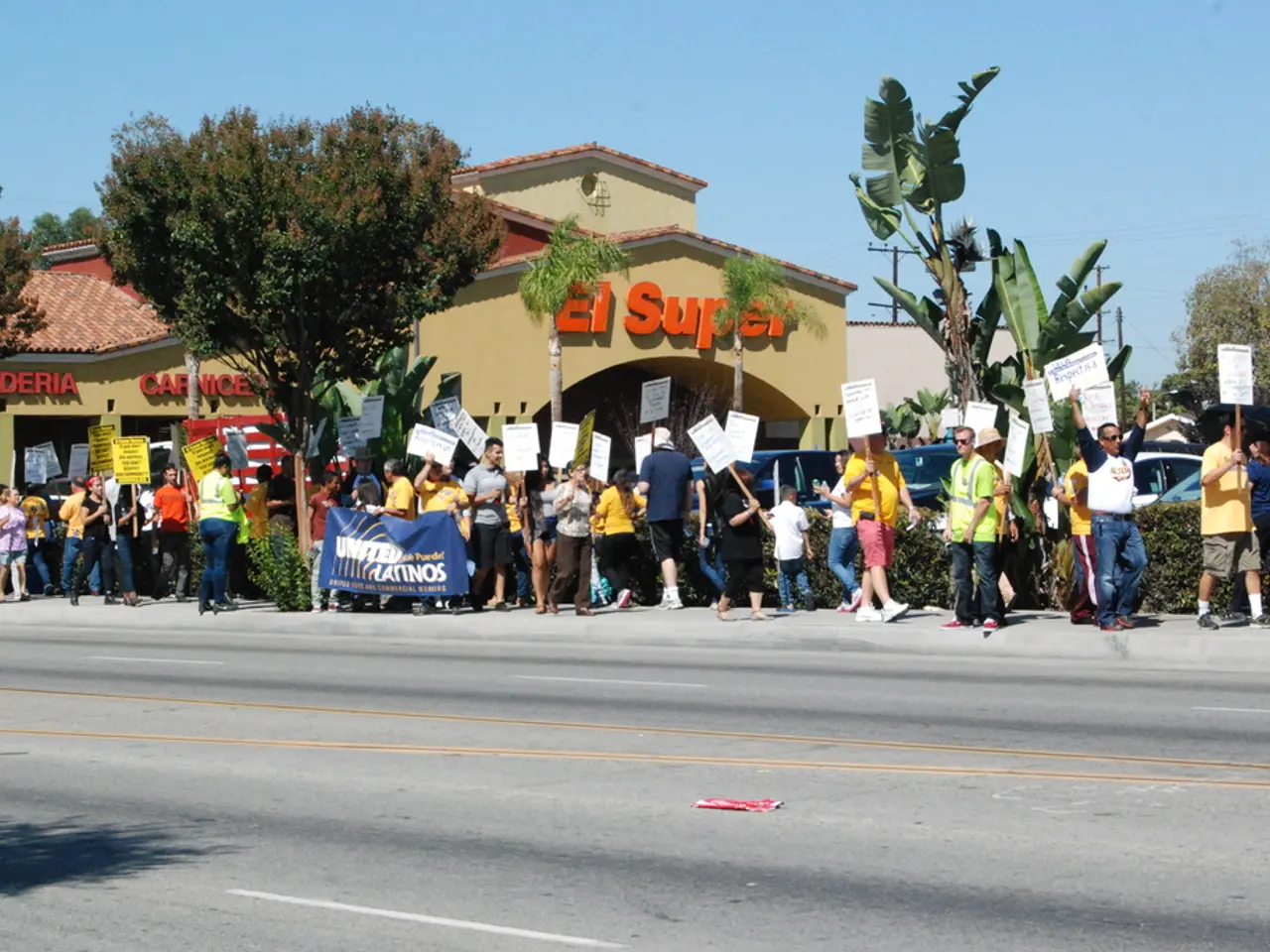Campaign Efficiency in Politics: Optimizing Influence Through Resource Utilization
## Efficient Resource Management in Modern Political Campaigns: A Comprehensive Guide
In the fast-paced world of modern political campaigns, success hinges on strategic management of resources. This includes people, money, technology, and data, all working together in a symphony of strategic planning and execution. Here are some best practices drawn from the latest campaign strategies:
## Strategic Planning & Goal Setting
- **Set Clear, Measurable Objectives**: Every resource allocation decision should be tied to clearly defined campaign goals, such as increasing voter engagement, mobilizing a specific demographic, or securing endorsements. - **Build a Comprehensive Campaign Plan**: This includes defining your core message, assembling a skilled team, and establishing a realistic budget. - **Research Opponents**: Analyse opponents’ funding and strategies using tools like OpenSecrets, helping in resource prioritization.
## Data-Driven Decision Making
- **Leverage Real-Time Data**: Continuously monitor digital and field efforts, using real-time analytics to adjust targeting, messaging, and spending for maximum efficiency. - **Invest in Quality Data Infrastructure**: Ensure your campaign has the tools to collect, analyse, and act on voter data, supporting smarter ad buys, targeted outreach, and dynamic content strategies. - **Integrate Programmatic Advertising**: Use automated, data-driven ad buying to reach the right voters at the right time, and shift resources based on performance metrics.
## Multi-Channel Outreach & Engagement
- **Combine Digital and Traditional Tactics**: Integrate programmatic ads with social media, direct mail, field organizing, and events to create a unified, omnichannel presence. - **Craft Compelling, Interactive Content**: Use social media not just for broadcasting, but for real engagement—polls, Q&A sessions, live streams, and personal stories foster deeper connections and encourage active participation. - **Personalize Communications**: Segment audiences and tailor messages to specific demographics for higher engagement and conversion rates.
## Fundraising & Financial Management
- **Diversify Revenue Streams**: Combine grassroots fundraising with digital appeals, peer-to-peer campaigns, and event-based fundraising to maximize financial resources. - **Monitor Spending Closely**: Regularly review your budget, track expenditures, and reallocate funds based on what delivers the best return on investment. - **Follow Up on Advocacy Actions**: After engaging supporters, prompt them to donate or attend events, turning one-time supporters into ongoing contributors.
## Team & Volunteer Management
- **Recruit and Train Strategically**: Build a team with complementary skills and provide ongoing training, especially on digital tools and data analysis. - **Empower Volunteers and Grassroots Supporters**: Use digital platforms to organize, communicate with, and mobilize volunteers and local advocates. - **Network and Collaborate**: Partner with local organizations, attend community events, and participate in debates to build relationships and broaden your reach.
## Adaptation and Agility
- **Stay Flexible**: Be prepared to pivot strategies in response to real-time feedback, external events, or shifting voter sentiment. - **Test and Iterate**: Continuously test different messages, channels, and tactics, using data to refine your approach. - **Embrace Technology**: Utilize advocacy software and marketing automation tools to streamline operations, personalize outreach, and measure impact across channels.
## Conclusion
The most effective modern campaigns treat every resource—time, money, data, volunteers—as interconnected levers in a larger strategic engine. Success hinges on clarity of purpose, data fluency, multi-channel integration, financial discipline, team empowerment, and the agility to adapt as conditions change. By embracing these best practices, campaigns can maximize their impact in an increasingly competitive and digital political landscape.
Additional practices include fostering an inclusive work environment, implementing accountability measures, maintaining clear communication channels, prioritizing initiatives based on potential impact, and respecting individuals' privacy rights. In the digital age, political campaigns require substantial investments in time, capital, and expertise, and must be agile and responsive, adapting strategies based on real-time data and changing voter sentiments. Opportunities for students and graduates abound, with chances to explore different aspects of political campaigns, gain practical experience, and expand their network.
- Modern political campaigns employ data analytics and analytics to make strategic decisions, as real-time data is leveraged for optimizing targeting, messaging, and spending.
- Effective use of resources in political campaigns requires a strong data infrastructure, allowing for smarter ad buys, targeted outreach, and dynamic content strategies.
- Success in politics today requires an integrated approach, combining digital and traditional tactics such as social media, direct mail, and events, to create a unified, omnichannel presence.
- Policy-and-legislation and general-news follow the evolvement of modern political strategies, as they discuss changes in funding, strategies, voter targeting, and data-driven decision making in the political landscape.








